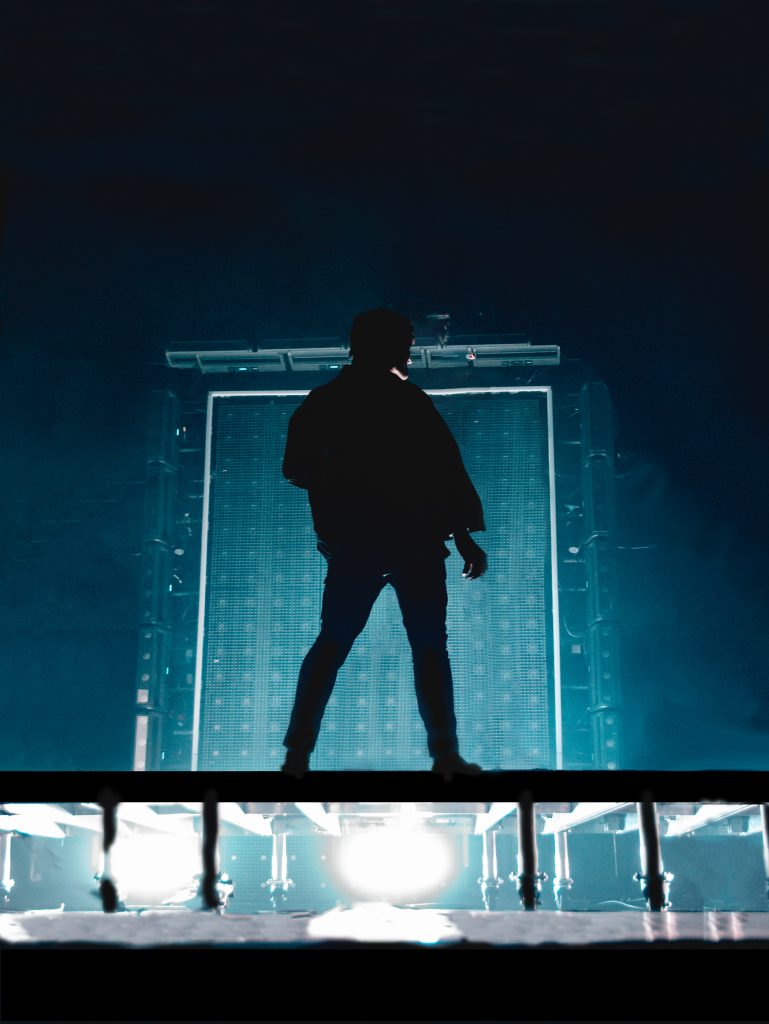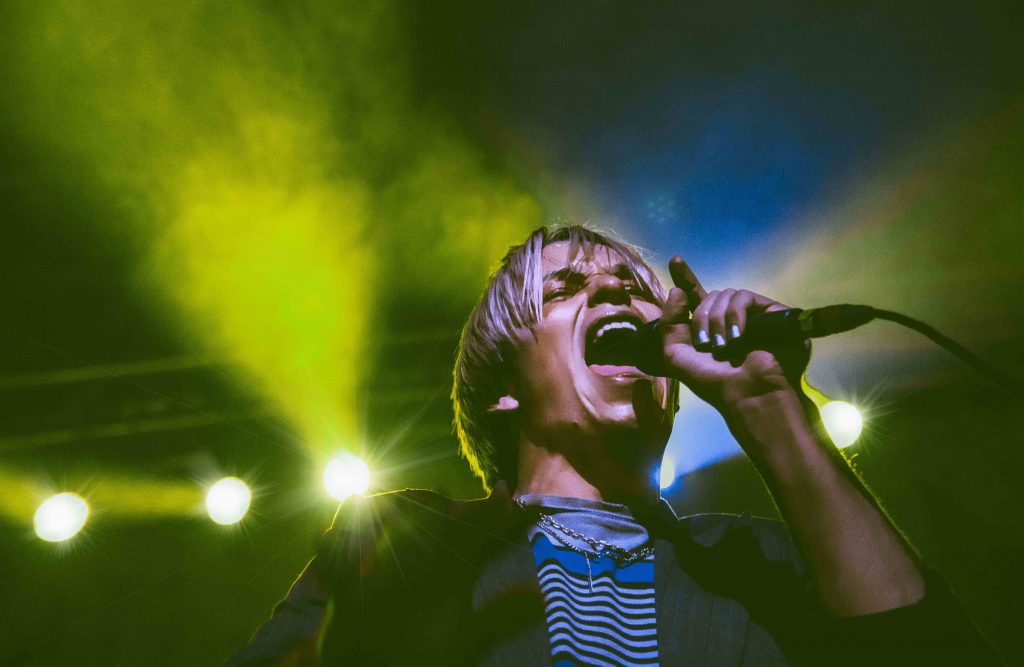I recently had a chance to interview photographer Bre Cura for Women’s History Month. At just 23 years old, she has already broken into the concert photography scene in a major way. Read on to find out her gear setup, how she recommends getting started in the industry, and how she feels about the current female presence in the music industry!

Before we start, can you introduce yourself?
Hello! My name is Bre Cura, and I’m from Coatesville, PA. I’m 23 years old, and I just graduated from West Chester University in 2020 with a degree in Journalism and Media & Cultural Studies.
How did you get started in concert photography?
I got started in concert photography just stemming from my love of music. I always found myself taking photos with old point and shoot cameras (yes, I am a master at sneaking cameras into shows, lol), and I was just so excited to edit them and share them with other people. There’s something really cool about taking a raw image and almost creating the feeling of being there live. Capturing artists is very vulnerable, and when you can get “that picture”, the one that sums up the night, nothing compares.
There is a festival that I would go to every summer, and I would wait in the front corner of the stage from 8 am to 8 pm, sometimes through pouring rain, to be able to take photos from the crowd. I was able to build my portfolio that way, hoping to use it to actually get a pass to shoot the festival from the pit one day. I applied to be a photographer and got rejected, needless to say, I was heartbroken. I wound up walking away from photography because I was so down on myself. After a year, Unclear Mag took a chance on me (thanks Cami!), and I got my confidence back. My full circle moment was actually getting invited to shoot the festival, with an all-access pass and all, and no 12 hour wait for a front-row spot!

What’s in your gear bag?
So my gear bag has remained the same since I started photography back in like 2012. I bought a used Canon Rebel T3i, and have the two kit lenses that came with it (24-70mm lens and a 75-300mm).
Putting myself through college, paying rent, and all that, I was never able to afford anything else so I spent eons figuring out the best way to use my tools. As my career progressed and the artists I was capturing started to range from local bands to Hozier, that T3i was there for all of it. It’s kind of humbling to show up to a gig and get into the pit and look around and see these people with fancy equipment and just know you’re going to have to work your butt off in the editing process to match their quality. Thankfully I’ve gotten really good at color correcting and salvaging images, which I probably wouldn’t have had I owned the best equipment.

What was your favorite concert shoot experience so far, and how was it different from the others?
I think my favorite moment has been getting to know one of my concert pals Matt Everitt. Matt was working as the tour photographer and merch manager for a band I was shooting, and on my way out after my photo time, I stopped by the merch booth and we just started talking. We found out we were from the same place in Michigan and had a lot of other random connections. He’s just such a cool guy and I really respect his artistry, and who he is as a person! I think the moments like that, which I wouldn’t have ever gotten without concert photography, make it so much cooler. The real connections you make along the way are so special.
Which artist would you love to photograph live?
I think a dream of mine would be to photograph Mumford and Sons. I was able to cross Third Eye Blind off my list in 2019, and that’s been on my bucket list for years.

What would your dream lineup for a concert be?
My dream line up would be, oh man, a weird mix of people. I think we’d start it off with some Grayscale, followed by Noah Kahan, Joy Oladokun, RKS, then some Styx and finish out the night with Tony Bennett.
What advice would you give to someone trying to get started?
The best advice I can give is that if the opportunities aren’t presenting themselves, make them. The magazine you want to write for isn’t answering you back? Make your own. Can’t get a band to respond to your emails for a photo pass? Learn how to take and edit pictures with your iPhone, create your own write-ups, and use that as your early portfolio. In this industry, most photographers work for free if they’re stepping in for one show, so if you’re willing to work for the exposure, people will respond. Just keep emailing, haha.
What else are you passionate about besides your photography?
I work as a wedding photographer for Right Start Photography as my full-time job. I am also the venue manager and day of coordinator for our venue Casablanca here in Coatesville, PA. I’m so lucky to be able to make a living doing what I love. Not everyone can do that, and I am so grateful to not be stuck behind a desk dreading work every day.
Do you find that there’s a strong female presence in the music industry? Or the opposite?
I think there is a strong female presence if you know where to look- which I think almost negates itself. I’ve been very lucky to meet some incredible women the deeper I get into the industry, but I would say at face value, the presence is severely lacking. In almost every interview my friend Emily Herbein and I do for my mag (The Queue), or for her website (phillylive.org) we ask women the same question, and they all say the same. I think slowly we as an industry are progressing towards a more inclusive environment, but it’s such a male lead industry that there is a lot of room for improvement.




